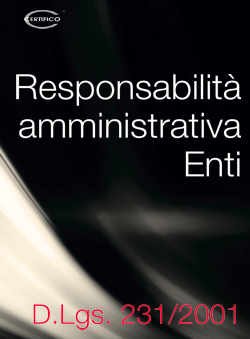Convenzione ILO C114 del 03 giugno 1959
| ID 14412 | | Visite: 2083 | Convenzioni ILO | Permalink: https://www.certifico.com/id/14412 |
Convenzione ILO C114 del 03 giugno 1959
ID 14412 | 27.08.2021
Convenzione ILO C114 Contratto di assunzione dei pescatori, 1959.
Ginevra, 03 giugno 1959
The General Conference of the International Labour Organisation, Having been convened at Geneva by the Governing Body of the International Labour Office, and having met in its Forty-third Session on 3 June 1959, and Having decided upon the adoption of certain proposals with regard to fishermen's articles of agreement, which is included in the fifth item on the agenda of the session, and Having determined that these proposals shall take the form of an international Convention, adopts this nineteenth day of June of the year one thousand nine hundred and fifty-nine the following Convention, which may be cited as the Fishermen's Articles of Agreement Convention, 1959:
Article 1
1. For the purpose of this Convention, the term fishing vessel includes all registered or documented ships and boats of any nature whatsoever, whether publicly or privately owned, which are engaged in maritime fishing in salt waters.
2. The competent authority may exempt from the application of the provisions of this Convention fishing vessels of a type and size determined after consultation with the fishing-boat owners' and fishermen's organisations concerned, where such exist.
3. The competent authority may, if satisfied that the matters dealt with in this Convention are adequately regulated by collective agreements between fishing-boat owners or fishing-boat owners' organisations, and fishermen's organisations, exempt from the provisions of the Convention concerning individual agreements owners and fishermen covered by such collective agreements.
Article 2
For the purpose of this Convention, the term fisherman includes every person employed or engaged in any capacity on board any fishing vessel and entered on the ship's articles. It excludes pilots, cadets and duly indentured apprentices, naval ratings, and other persons in the permanent service of a government.
Article 3
1. Articles of agreement shall be signed both by the owner of the fishing vessel or his authorised representative and by the fisherman. Reasonable facilities to examine the articles of agreement before they are signed shall be given to the fisherman and, as the case may be, also to his adviser.
2. The fisherman shall sign the agreement under conditions which shall be prescribed by national law in order to ensure adequate supervision by the competent public authority.
3. The foregoing provisions shall be deemed to have been fulfilled if the competent authority certifies that the provisions of the agreement have been laid before it in writing and have been confirmed both by the owner of the fishing vessel or his authorised representative and by the fisherman.
4. National law shall make adequate provision to ensure that the fisherman has understood the agreement.
5. The agreement shall not contain anything which is contrary to the provisions of national law.
6. National law shall prescribe such further formalities and safeguards in respect of the completion of the agreement as may be considered necessary for the protection of the interests of the owner of the fishing vessel and of the fisherman.
Article 4
1. Adequate measures shall be taken in accordance with national law for ensuring that the agreement shall not contain any stipulation by which the parties purport to contract in advance to depart from the ordinary rules as to jurisdiction over the agreement.
2. This Article shall not be interpreted as excluding a reference to arbitration.
Article 5
A record of employment shall be maintained for every fisherman by or in a manner prescribed by the competent authority. At the end of each voyage or venture a record of service in regard to that voyage or venture shall be available to the fisherman concerned or entered in his service book.
Article 6
1. The agreement may be made either for a definite period or for a voyage or, if permitted by national law, for an indefinite period.
2. The agreement shall state clearly the respective rights and obligations of each of the parties.
3. It shall contain the following particulars, except in so far as the inclusion of one or more of them is rendered unnecessary by the fact that the matter is regulated in another manner by national laws or regulations:
(a) the surname and other names of the fisherman, the date of his birth or his age, and his birthplace;
(b) the place at which and date on which the agreement was completed;
(c) the name of the fishing vessel or vessels on board which the fisherman undertakes to serve;
(d) the voyage or voyages to be undertaken, if this can be determined at the time of making the agreement;
(e) the capacity in which the fisherman is to be employed;
(f) if possible, the place at which and date on which the fisherman is required to report on board for service;
(g) the scale of provisions to be supplied to the fisherman, unless some alternative system is provided for by national law;
(h) the amount of his wages, or the amount of his share and the method of calculating such share if he is to be remunerated on a share basis, or the amount of his wage and share and the method of calculating the latter if he is to be remunerated on a combined basis, and any agreed minimum wage;
(i) the termination of the agreement and the conditions thereof, that is to say--
(i) if the agreement has been made for a definite period, the date fixed for its expiry;
(ii) if the agreement has been made for a voyage, the port of destination and the time which has to expire after arrival before the fisherman shall be discharged;
(iii) if the agreement has been made for an indefinite period, the conditions which shall entitle either party to rescind it, as well as the required period of notice for rescission: Provided that such period shall not be less for the owner of the fishing vessel than for the fisherman;
(j) any other particulars which national law may require.
Article 7
If national law provides that a list of crew shall be carried on board the agreement shall either be recorded in or annexed to the list of crew.
Article 8
In order that the fisherman may satisfy himself as to the nature and extent of his rights and obligations the competent authority shall lay down the measures to be taken to enable clear information to be obtained on board as to the conditions of employment.
Article 9
An agreement entered into for a voyage, for a definite period, or for an indefinite period, shall be duly terminated by:
(a) mutual consent of the parties;
(b) death of the fisherman;
(c) loss or total unseaworthiness of the fishing vessel;
(d) any other cause that may be provided for in national law.
Article 10
National law, collective agreements or individual agreements shall determine the circumstances in which the owner or skipper may immediately discharge a fisherman.
Article 11
National law, collective agreements or individual agreements shall also determine the circumstances in which the fisherman may demand his immediate discharge.
Article 12
Except as otherwise provided therein, effect may be given to the provisions of this Convention by national law or by collective agreements.
Article 13
The formal ratifications of this Convention shall be communicated to the Director-General of the International Labour Office for registration.
Article 14
1. This Convention shall be binding only upon those Members of the International Labour Organisation whose ratifications have been registered with the Director-General.
2. It shall come into force twelve months after the date on which the ratifications of two Members have been registered with the Director-General.
3. Thereafter, this Convention shall come into force for any Member twelve months after the date on which its ratification has been registered.
Article 15
1. A Member which has ratified this Convention may denounce it after the expiration of ten years from the date on which the Convention first comes into force, by an act communicated to the Director-General of the International Labour Office for registration. Such denunciation shall not take effect until one year after the date on which it is registered.
2. Each Member which has ratified this Convention and which does not, within the year following the expiration of the period of ten years mentioned in the preceding paragraph, exercise the right of denunciation provided for in this Article, will be bound for another period of ten years and, thereafter, may denounce this Convention at the expiration of each period of ten years under the terms provided for in this Article.
Article 16
1. The Director-General of the International Labour Office shall notify all Members of the International Labour Organisation of the registration of all ratifications and denunciations communicated to him by the Members of the Organisation.
2. When notifying the Members of the Organisation of the registration of the second ratification communicated to him, the Director-General shall draw the attention of the Members of the Organisation to the date upon which the Convention will come into force.
Article 17
The Director-General of the International Labour Office shall communicate to the Secretary-General of the United Nations for registration in accordance with Article 102 of the Charter of the United Nations full particulars of all ratifications and acts of denunciation registered by him in accordance with the provisions of the preceding Articles.
Article 18
At such times as it may consider necessary the Governing Body of the International Labour Office shall present to the General Conference a report on the working of this Convention and shall examine the desirability of placing on the agenda of the Conference the question of its revision in whole or in part.
Article 19
1. Should the Conference adopt a new Convention revising this Convention in whole or in part, then, unless the new Convention otherwise provides:
(a) the ratification by a Member of the new revising Convention shall ipso jure involve the immediate denunciation of this Convention, notwithstanding the provisions of Article 15 above, if and when the new revising Convention shall have come into force;
(b) as from the date when the new revising Convention comes into force this Convention shall cease to be open to ratification by the Members.
2. This Convention shall in any case remain in force in its actual form and content for those Members which have ratified it but have not ratified the revising Convention.
Article 20
The English and French versions of the text of this Convention are equally authoritative.
________
Versione non ufficiale
Fonte e Ratifica: DPR 23 Ottobre 1961, n. 1549
Entrata in vigore: 07 Novembre 1961
| Descrizione | Livello | Dimensione | Downloads | |
|---|---|---|---|---|
| Convenzione ILO C114 del 03 giugno 1959.pdf Convenzione ILO |
294 kB | 0 |
Tags: Sicurezza lavoro ILO































































